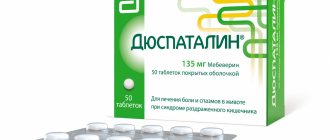Constant fatigue, daytime sleepiness, nervousness, deterioration of the condition of the skin and nails, and the constant occurrence of certain health problems are familiar to many modern people, especially residents of large cities. Many such disorders are caused by a deficiency of such essential substances for the proper functioning of the human body as vitamin D and Omega-3. Therefore, today almost everyone is recommended to take medications containing them or fish oil containing both vitamin D and Omega-3. But are these products interchangeable and isn’t starting to use them on your own likely to cause harm to your health?
What is vitamin D and its role in the body
Vitamin D is one of the most important biologically active substances synthesized in the body, or more precisely in the skin, under the influence of sunlight. Today, most city residents spend very little time in the fresh air, much less allow themselves to bask in the gentle rays of the sun. Therefore, if previously a deficiency of this vitamin was mainly found in children, now the vast majority of adults are in a similar state. This raises a very pressing question about the need for additional introduction into the diet of foods and preparations containing its predecessors.
Previously, a disease such as rickets was very common in pediatrics, the main cause of which was a lack of vitamin D. But the use of fish oil containing vitamin D precursors solved the problem.
Residents of northern regions, where there is little sun, especially suffer from a lack of vitamin D. Therefore, for them additional sources of this compound are:
- milk and fermented milk products;
- egg yolks;
- seafood.
However, getting the right amount of vitamin D from food is extremely difficult. Therefore, today special preparations and dietary supplements (dietary supplements) are used to compensate for its deficiency.
Providing the body with the required amount of vitamin D every day is very important for maintaining health and normal well-being. After all, it takes part in a lot of different biochemical processes, and also has a positive effect on metabolism, the body’s ability to resist all kinds of viral infections, as well as oxidative stress. Moreover, by maintaining normal vitamin D levels, the risk of cancer and fetal malformations during pregnancy is reduced.
Low levels of this compound in adults contribute to the development of osteoporosis, i.e. a decrease in bone density and an increase in its porosity. As a result, the risk of fractures, including vertebral compression fractures, increases sharply, even with a minor impact or simply a sudden movement. That is why vitamin D is very often used in the treatment of diseases of the spine and the musculoskeletal system in general.
In addition, with vitamin D deficiency in the body, the following are observed:
- sleep disorders;
- worsening mood, depression, depressive states;
- tendency to gain excess weight;
- cognitive disorders (deterioration of memory, attention, ability to concentrate);
- frequent colds;
- premature aging;
- increased risk of developing diabetes;
- accelerated wear of joints, which leads to the development of arthrosis, osteochondrosis and their complications in the form of protrusions, intervertebral hernias, etc.
Therefore, it is imperative to maintain normal vitamin D levels. If this cannot be achieved naturally, i.e. through exposure to sunlight, then special dietary supplements should be used. But recent research has yielded stunning results that show that vitamin D is, in fact, a steroid hormone. Therefore, today it is possible to start taking drugs based on it only after determining its concentration in the blood and obtaining low values indicating a deficiency.
Features of taking vitamin D
There are 2 types of vitamin D preparations: based on cholecalciferol and calcitriol. In the first, the active ingredient is an inactive form of vitamin D, which is extremely difficult to achieve an overdose of when taken. This allows it to be used to gently replenish vitamin D deficiency. Calcitriol is an active form of vitamin D, the use of which is indicated only when its level in the blood is critically low. Preparations with this active substance are prescribed exclusively by a doctor and require regular monitoring of treatment results.
But to normalize the level of vitamin D in the body and improve well-being, it is not enough to simply take medications and dietary supplements containing it. This must be done correctly, since the precursors of this hormone that enter the body with food are poorly absorbed in the gastrointestinal tract when:
- diseases of the gallbladder that provoke disturbances in the outflow of bile, including cholecystitis and bends of the bile duct, since the absorption of vitamin D requires the direct participation of bile;
- inflammatory bowel diseases and dysbiosis;
- obesity, since the lion's share of vitamin D entering the body accumulates in adipose tissue;
- genetic disorders leading to a decrease in the number of vitamin D-sensitive receptors.
On average, an adult needs about 600-1000 IU of vitamin D per day to cover all the body's needs. This amount is contained in approximately 2-4 teaspoons of fish oil. If you significantly exceed this norm, it is possible:
- decreased appetite;
- increased irritability;
- pain in muscles and joints;
- rigidity of the walls of blood vessels;
- increased heart rate;
- nausea and vomiting.
Contraindications and adverse reactions
You should avoid taking the drug if you have an individual intolerance to at least one component. Other contraindications include:
- allergic reactions to any type of fish;
- for serious bleeding;
- in the first days after surgery;
- with an active form of tuberculosis;
- for certain diseases of the gastrointestinal tract, liver and kidneys.
Adverse reactions may occur in the form of allergies, gastrointestinal disorders, vomiting, nausea, constipation or diarrhea, dizziness, and headaches. In rare cases, skin problems may occur.
There may be cases of overdose, manifested by the side effects described above.
If undesirable symptoms appear, you should immediately stop taking omega-3 and begin symptomatic treatment.
Taking omega-3 does not affect the ability to drive vehicles and other machinery.
What is Omega-3
The concept of Omega-3 refers to a complex of alpha-linolenic, eicosapentaenoic (EPA) and docosahexaenoic (DHA) polyunsaturated fatty acids, which are necessary for the body to carry out a number of biochemical processes correctly, but are not synthesized within itself. Therefore, in order to ensure the proper functioning of a large number of organs, in the regulation of which these unsaturated acids are involved, it is necessary to ensure a constant supply of the entire Omega-3 complex to the body with food.
Its sources are:
- sardine, mackerel, herring, halibut, trout, chum salmon and other fatty fish, but only of wild origin (Omega-3 accumulates only in fish that feed on plankton, and not feed);
- Cod liver;
- seafood;
- linseed, sea buckthorn, mustard oil;
- beef, offal;
- egg yolks;
- pumpkin, sunflower, flax seeds;
- mint, spinach, lettuce, pumpkin, asparagus, sorrel, broccoli;
- legumes
But in practice, even ardent adherents of the Mediterranean diet fail to obtain the required amount of Omega-3 from the food they consume every day. The problem of getting Omega-3 into the body becomes especially acute for vegetarians, since the largest amount of these important polyunsaturated fatty acids is found in marine fish and seafood.
Therefore, today most doctors agree that every person, including children, needs to use special dietary supplements to ensure the proper functioning of the body. But the Omega-3 complex is involved in the work:
- heart and blood vessels;
- brain;
- retina;
- musculoskeletal system;
- immune system;
- genitals;
- skin.
Therefore, with a long-term persistent lack of Omega-3 in the body, there is a high risk of developing atherosclerosis, stroke, heart attack, vision impairment and endocrine disorders.
Omega-3 and Omega-6 should not be confused. The latter complex of unsaturated fatty acids is also important for the body, but their deficiency is rare. This is due to the fact that sources of Omega-6 are oatmeal, poultry, and vegetable oils, which are present in the daily diet of the vast majority of people. If you additionally take Omega-6 in increased dosages, this can lead to an overdose and provoke an exacerbation of chronic inflammatory processes or create the preconditions for the development of new ones.
Benefits of Omega-3 for the body
Taking Omega-3 in individually selected doses allows you to achieve a lot of positive changes in the body’s condition and get rid of a number of problems, many of which we are accustomed to consider inevitable, namely:
- accelerate the removal of metabolic products, harmful compounds, free radicals and decay products, which improves performance, gives lightness and reduces the likelihood of developing cancer;
- speed up the process of muscle recovery after training, building muscle mass and burning excess fat tissue;
- reduce the sensitivity of the intestines to irritating factors, which improves digestion and eliminates the problem of constipation, diarrhea, irritable bowel syndrome;
- normalize the menstrual cycle, improve the quality and motility of sperm, which makes it possible to achieve pregnancy faster, which is important for problems with conception, and also helps reduce the risk of developing benign prostatic hyperplasia;
- cleanse the walls of blood vessels from harmful cholesterol, increase their elasticity, normalize blood pressure levels and improve the functioning of the cardiovascular system as a whole, which sharply reduces the likelihood of vascular accidents, i.e. strokes, heart attacks;
- increase cognitive abilities (thinking, memory, attention) by normalizing the functioning of the central nervous system, since a third of all fats needed by the brain are EPA and DHA;
- strengthen the immune system and reduce the number of transmitted viral diseases by strengthening cell membranes, increasing the activity of leukocytes and creating protection for the respiratory tract from the penetration of viruses and bacteria;
- increase stress resistance and improve psycho-emotional state by activating the production of serotonin, also called the hormone of joy;
- improve the condition of the skin by increasing the amount of synthesized collagen and improving its quality, which allows you to maintain the elasticity and youth of the skin longer.
It is very important for pregnant and lactating women to take Omega-3, as these substances are directly involved in the formation of the brain and nervous system of the fetus, as well as in its overall development.
In addition, Omega-3 has anti-inflammatory properties and accelerates tissue regeneration processes. Therefore, it is especially necessary in increased quantities for various inflammatory diseases, as well as any degenerative changes in the body. We must not forget about the fact that the condition of the skin largely depends on Omega-3. Therefore, maintaining a normal level of these polyunsaturated fatty acids helps to significantly slow down the aging process and improve skin color and smooth out fine wrinkles.
Reception features
The daily dose for an adult is considered to be 2 g of Omega-3, and for children 4-10 years old - 0.9 g. In some cases and only after testing, this dose can be increased, but in any situation it cannot exceed 8 g per day . To provide the adult body with this amount of these polyunsaturated fatty acids, it is necessary to eat fish 4-5 times a week. In practice, this is difficult to implement, since fatty fish, firstly, is not affordable for everyone, and secondly, consuming it in such quantities can lead to excess weight gain with an insufficient level of physical activity.
Therefore, for many, the solution is to take dietary supplements with Omega-3. But before you start using them on a regular basis, you should make sure that there are no contraindications, namely:
- allergies;
- kidney diseases, especially urolithiasis in the acute stage;
- elevated calcium levels;
- pathologies of the thyroid gland;
- tuberculosis.
Omega-3 preparations are poorly accepted by the body in case of chronic constipation and flatulence.
If there are no contraindications and the amount of Omega-3 required to cover all the body’s needs has been accurately established, the chosen remedy should be taken only during or after meals. When consumed on an empty stomach, it can cause problems with the intestines and stomach.
Indications for use
Omega-3 is taken for various conditions and problems:
- help with mental disorders;
- maintain healthy skin;
- maintain eye health;
- help with weight loss;
- reduce the likelihood of cardiovascular diseases;
- have a beneficial effect on the course of pregnancy;
- improve liver function;
- reduce the risk of allergic reactions;
- strengthen bones.
Omega-3s are especially beneficial for older people. The supplement is considered an excellent prevention of senile insanity, absent-mindedness, and improves memory. Many people take it for diabetes to control weight.
When to take Vitamin D in combination with Omega-3
The vast majority of residents of cities, especially megacities, experience an acute lack of vitamin D and polyunsaturated fatty acids. This is often observed even when taking appropriate dietary supplements, since not everyone understands the peculiarities of the absorption of beneficial components in the gastrointestinal tract. In order for them to be maximally absorbed and beneficial to the body, they must be correctly combined with each other, observing individually selected doses.
To get the maximum effect from taking expensive dietary supplements, you should initially get tested for the level of vitamin D in the body and the so-called Omega-3 index. This will help to accurately determine the degree of their deficiency and individually calculate the required dosage of each drug, which will ensure that all the body’s needs for vitamin D and Omega-3 are covered and will not lead to an overdose.
The fact is that vitamin D and Omega-3 tend to enhance each other’s effects. Therefore, it is necessary to separately calculate the doses required for a particular person. But if it is difficult to achieve an overdose of Omega-3, then it is quite easy to get excess vitamin D from dietary supplements and the negative consequences of this.
You can undergo the full range of necessary tests, receive qualified advice from specialists and, if necessary, immediately make up for the existing deficiency of these essential substances for the proper functioning of the body by administering injectable forms of drugs at the Institute of Human Restoration.
The reasons for contacting a doctor and testing for vitamin D and Omega-3 levels should be:
- leg muscle cramps;
- constant feeling of fatigue;
- increased sleepiness, including during the day;
- presence of excess weight or underweight;
- hypertension;
- frequent colds;
- eye fatigue, pain, which is caused by dry sclera;
- diseases of the joints and spine;
- cardiovascular disorders;
- dryness, flaking of skin, brittle hair;
- the appearance of signs of premature aging;
- constant depression, apathy, depression;
- slow healing of wounds.
If laboratory tests have confirmed a deficiency of Omega-3 and vitamin D in the body, you should reconsider your diet and lifestyle. It is also important to choose the most appropriate drug or dietary supplement for the situation. This will help satisfy the body’s needs for them as quickly as possible and reduce the risk of developing disorders of the internal organs.
It can be extremely difficult to choose the right product on your own, since not all dietary supplements have a balanced composition and not only cannot ensure that the body receives the required amount of Omega-3 and vitamin D, but may also contain components that prevent their full absorption. One of the best modern products of this kind is Mermaids liquid fish oil, produced in Norway from wild fish, which is the most useful.
It is tested annually by the Norwegian state laboratory Noflma.
Mermaids fish oil is made exclusively from fresh cod liver, caught just hours before.
Mermaids fish oil is made from the liver of wild Arctic cod, Gadus Morhua. Between January and April, these fish come to northern Norway for spawning, are caught in an ecological location in the Lofoten Islands and are immediately processed there. Due to strict government regulations, fishing methods promote sustainable fishing.
Cod liver is processed into Mermaids fish oil without ever coming into contact with oxygen during the entire production process and bottling occurs under the protection of nitrogen.
The result of this process is oil:
- extremely high quality;
- natural content of DHA and EPA;
- vitamins A, D (not destroyed during processing);
- no oxidation;
- high resistance to oxidation when opening the bottle;
- maximum bioavailability and digestibility;
Mermaids Omega-3 is a completely Norwegian product that does not change its shape during processing. As an antioxidant, Mermaids fish oil contains only natural products such as 8 element vitamin E and organic thyme oil.
Mermaids oil has no fishy taste or odor, making it child-friendly.
Thus, the Mermaids product is a completely natural FF oil, which contains Omega-3, 6, 7, 9 in natural proportions and natural vitamins A and D. It is completely free of synthetic additives and vitamins, and is conveniently packaged in bottles made of dark glass make it convenient for use.
FF-oil (food functional oil) – first fraction oil, with TOTOX <5, free fatty acids <0.5%, which is used to enrich most food products in Norway to increase their usefulness (bread, milk, butter, yoghurts, ice cream, canned food, etc.)
It is completely free of synthetic additives and vitamins, and practical packaging in dark glass bottles makes it convenient for use.
Based on all of the above, it becomes obvious that both vitamin D and Omega-3 are essential compounds for the human body. But at the same time, most modern people experience an acute shortage of both of them, which requires the introduction of special food additives into the diet to ensure the proper functioning of all organs and systems of the body. But it is impossible to choose the right dose, especially if it is necessary to combine vitamin D and Omega-3, on your own, since they enhance the effect of each other, which can easily provoke an overdose.
The way out of the situation is to undergo an examination and individually select the required dose of both types of substances. The optimal source of natural vitamins and polyunsaturated fatty acids is fish oil. But its choice should be treated with the utmost care, so that only wild fish serves as the raw material for its production, and the finished product is maximally protected from oxidative processes, since their products are free radicals destructive to the cells of the human body.
What are the benefits of fish oil? Features of the composition
Fish oil is obtained from the fatty tissue of marine fish. It contains components such as polyunsaturated fatty acids, vitamins, phosphorus, magnesium, iodine and calcium. Fish oil has important resources that support a person's physical and psychological health. It is used to prevent diseases caused by deformation or destruction of various body tissues. The benefit of fish oil is that it performs regenerative and construction functions.
It is important to ensure a sufficient intake of fish oil in the body in old age. The components it contains help reduce the rate of degenerative changes occurring in the brain. A number of studies have confirmed that dietary supplements based on this component not only slow down the deterioration of cognitive abilities, but also, 5 weeks after the start of use, provide effective results in terms of their recovery ().
Fish oil has proven to be an effective remedy for the complex treatment of psoriasis. A group of patients were offered the nutritional supplement for 8 weeks. After a course of use of the drug, a decrease in the area of affected skin was found. Patients noticed a decrease in itching and a decrease in the degree of erythema ().










